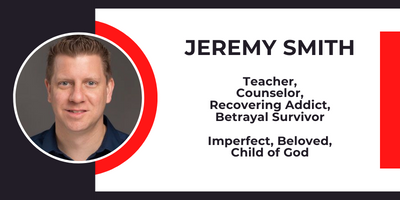Are You a Cow Or A Buffalo?
Feb 13, 2024
According to Rory Vaden, cows run away from incoming storms, while buffalo charge at them. As a result, the cows experience the downpour longer than buffalo.
In his book, Take the Stairs, Vaden describes this tendency as the Pain Paradox, where short-term easy leads to long-term difficult and short-term difficult leads to long-term easy. Here's an excerpt:
“The last time you came up to a set of stairs and an escalator, did you take the stairs? If you’re like 95% of the world, then you probably didn’t. Most people don’t; most of the time we look for shortcuts. We all want to be successful and we all want to have a happy life, but we constantly look for the easy way. We look for the ‘escalator’ in hopes that life will be easier. Unfortunately, in our search for making things easier, we are actually making them worse.”
Addiction
Addiction takes this principle at an extreme level. Rather than dealing with the underlying emotions of discomfort, a quick-fix "drug-of-choice" offers immediate numbing of the pain along with momentary pleasure.
Without developing the skills of healthy emotional management, quick-fixes easily becomes the only tool available to cope, resulting in a dependency on the drug-of-choice.
For some, it's pornography. For others, it's social media, alcohol, shopping, career success, body image, nicotine, food, exercise, control, TV, gaming, money, gambling, religious dogma... and the list goes on. Functionally, ANYTHING may qualify as an addiction if it is repeatedly used to suppress and avoid discomforting emotions.
In essence, cows and addicts have a common mindset... avoid discomfort and take the easy path for momentary relief. However, as you already know, this actually prolongs the pain.
Thinking like a buffalo, on the other hand, means embracing the discomfort and learning healthy emotional skills to work through it. As a trade off, the overall duration of pain is shortened.
Betrayal
For those experiencing intimate partner betrayal, the pain paradox applies as well.
One path forward embraces the hard work of personal healing and growth by releasing control of one's spouse. It means exploring wounds and traumas from before the relationship, now inflamed, which have nothing to do with the spouse. It requires a determined focus on self to lovingly healing the darker aspects of one's own story.
The other path is based on managing the spouse's behavior and avoids personal, internal work. Doing so feeds the victim-mindset leads to a life-time of feeling powerless and stuck. In the short run, this path is easier and thus more often traveled.
In many ways, the cow/buffalo metaphor also applies to betrayed spouses. While it may be human nature to avoid immediate discomfort by avoiding personal recovery work, doing so only inflames and prolongs the pain.
Thinking like a buffalo, on the other hand, means embracing the discomfort of healing one's own story, regardless of what an unfaithful spouse may or may not do. As a trade off, the overall duration of pain is shortened.
Ponder
It's in our very nature to seek pleasure and avoid pain, which makes us a lot like cows... and in a lot of ways like addicts. Truth be told, we are ALL addicted to something.
So, what's your addition? What do you turn to for a quick fix when emotions are overwhelming? What behavior or chemical you rely on to numb the discomfort and avoid working on the deeper issues you know you should face?
Will you be like the cow and run from the pain only to experience it longer? Or will you be like the buffalo and face it head-on to get through it more quickly?
Most chose the first. I invite you to chose the second... and weather life’s storms like a buffalo.

RELATED:
- What is a Double Bind? (coming soon)

Stay connected with news and updates!
Receive emails about new posts, free webinars, trainings and live events.
We hate SPAM. We will never sell your information, for any reason.

